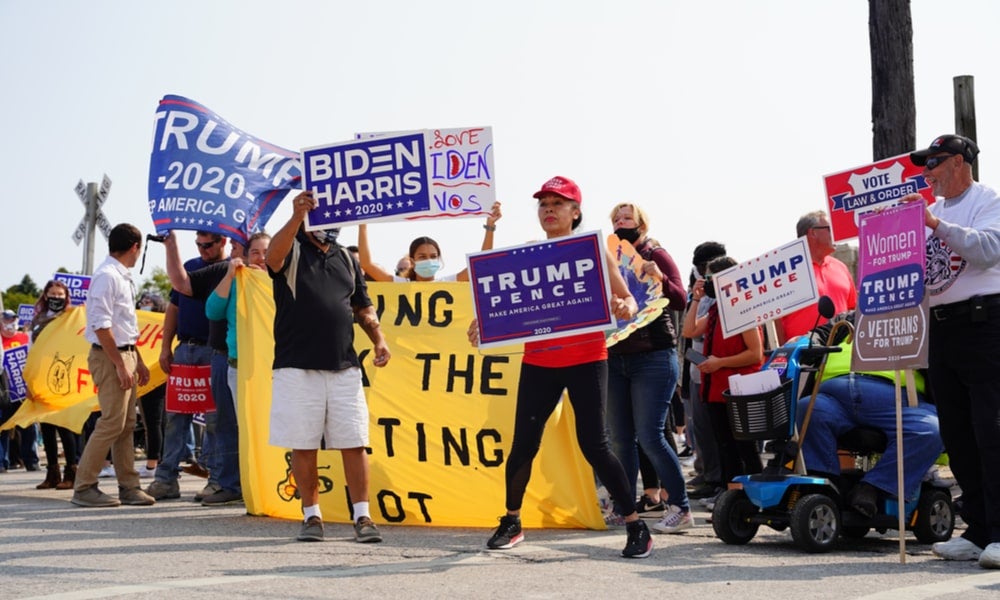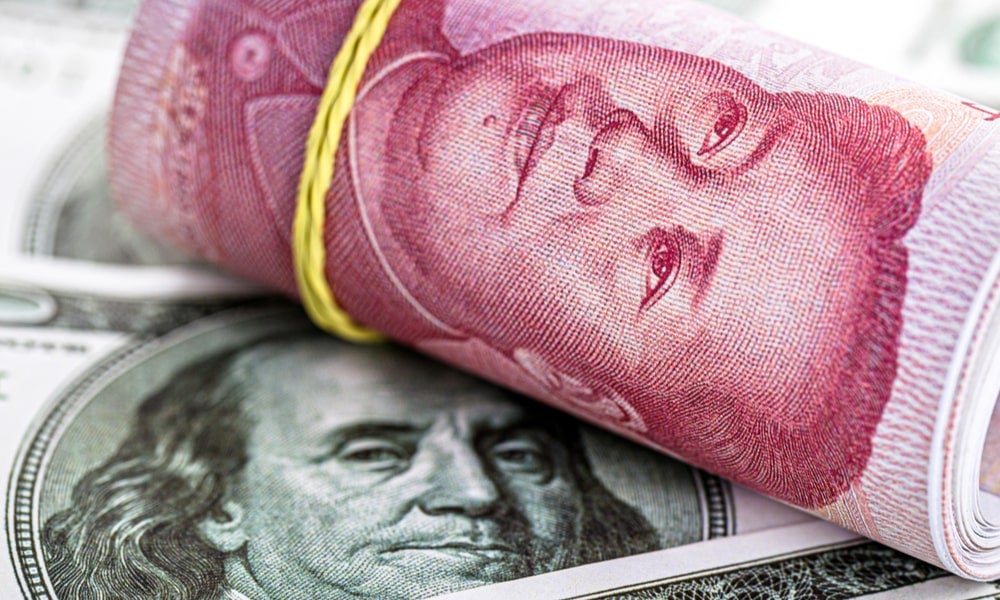How the changing fortunes of politicians impact supply chains
Supply chain leaders in multinational corporations need to manage risks associated with political leadership changes in countries where operations could be disrupted
The world of business and the world of politics are inextricably linked. Political leaders can have a significant impact on the outlook for multinational corporations that have developed global supply chains in order to reduce production costs, access growing markets and tap into scarce resources.
However, when there is a change in the political leader of a country (such as the president or prime minister), multinational corporations with global supply chains in those countries can be affected in a number of ways. For example, the American Chamber of Commerce in Brazil surveyed executives of US multinational corporations about their reasons for decreasing business involvement in Brazil in 2018. The survey found that 62 per cent of respondents were worried about uncertainty during Brazil's presidential turnover, so they were cautious about their business involvement in the country.
Politician turnover also introduces a range of difficulties for the management of multinational corporations and their supply chain partners in countries where political leaders change, according to Dr Maggie Dong, Associate Professor and Head of the School of Marketing at UNSW Business School. For instance, when former US President Donald Trump came to power in 2017 with a foreign policy stance of “America First”, many foreign companies that were supplying to American firms had to monitor the US market more closely. Many of these companies subsequently renegotiated specific contingency terms (including logistics and volumes) with their American customers, and also prepared a plan B for setting up their factories in the US.

There are important financial implications for supply chain leaders and their organisations when there is a change in political leaders in countries where supply chains may be impacted, according to A/Prof. Dong, who co-authored the research paper, Adjusting Supply Chain Involvement in Countries with Politician Turnover: A Contingency Framework, published in Journal of Operations Management.
The research paper found that when there is a change in political leaders, this decreases the mean proportion of a multinational corporation’s global sales that occur in the turnover country by 8.3 per cent. However, if the political successor is more market-friendly than their predecessor, this can provide an important boost for these corporations, with a 3.5 increase in the proportion of customers, a 3.9 per cent increase in transaction volumes as well as a 7.1 per cent increase in the proportion of suppliers.
Two strategies multinational companies take when a political leader changes
As a result, many multinational companies downsized their supply and customer bases and reduced their transaction volume in order to maintain a more satisfactory supply chain efficiency in the US, according to A/Prof. Dong. She observed this is a common theme among multinationals around the world: “When a country experiences the transition of its top political leader, multinational corporations with global supply chains tend to delay their supply chain involvement in this country,” she said.
Read more: How to manage supply shortages in the face of unexpected events
These delays are implemented via postponement and/or hedging strategies. Postponement refers to a delay of procurement orders or supplies to maintain flexibility, and A/Prof. Dong said this strategy is attractive to multinational corporations with flexible contracts and buffering inventory. On the other hand, she said hedging involves moving the supply and/or procurement business to other countries for several months to balance the supply risks.
“These two strategies, hedging and postponement, are not mutually exclusive,” she said. “But our empirical analysis of the US listed multinational corporations suggests that hedging is likely to be the main strategy for supply chain operations for firms operating in the country with a new political leader.”
It is important to note, however, that these strategies are temporary, and once uncertainty about policies of a new political leader wanes (after the first year in office, for example), A/Prof. Dong said multinational corporations can move back or re-establish their supply chain bases in the country.

Left-wing vs right-wing: how multinational companies hedge their bets
Multinationals consider a range of factors in determining what strategy to take when a political leader changes in a country that is part of their supply chain. The first factor is the political successor’s market-friendliness, relative to the incumbent, according to A/Prof. Dong.
If the incumbent is left-wing, for example, then she said the average multinational corporation would make a small increase in supply chain involvement for a left-wing successor – while they would likely decrease supply chain involvement for a right-wing successor. “If the incumbent is right-wing, then turnover is unlikely to increase market friendliness, so the average multinational corporation could anticipate making some degree of reduction in supply chain involvement,” she said.
Another important factor for multinational companies is the successor’s political career length. All things being equal, a successor who has had a long political career is good news to multinational corporations, because A/Prof. Dong said this means less uncertainty and thus less necessity to reduce supply chain involvement. “An example would be US President Joe Biden, who had been a politician for more than three decades before taking on the role of President. His long political experience adds to the policy certainty when he stepped into the role,” she said.
A third and important factor is the country’s corruption level. In a more corrupt country, A/Prof. Dong said multinational corporations tend to adjust their supply chain involvement to a greater extent during changes in political leadership. This is because the company’s supply chain business is more affected by the political leader’s personal will and less protected by political and legal institutions of the country, she explained. For example, when President Jinping Xi came to power in China in 2012, he started a relentless anti-corruption campaign, which shrank jewellery imports by approximately 55 per cent (US$194 million) in 2013.
Read more: Apple and Foxconn: addressing power imbalances in global supply chains
How can supply chain leaders adapt to changes in political leadership
A/Prof Dong’s research has a number of important implications for supply chain leaders and other key stakeholders within multinational corporations – particularly given recent times with increased geopolitical uncertainties around the world. In particular, she suggested supply chain leaders could take a range of approaches in responding to changes in political leadership of countries where their organisation’s supply chain may be disrupted.
1. Conservative reactions: “Geopolitical uncertainties arise around the world, not only those obvious and high-profile ones, such as wars and revolutions, but even the less dramatic ones such as politician turnovers discussed in this study,” said A/Prof. Dong, who noted the majority of supply chain leaders react to geopolitical uncertainties in a conservative way, so they reduce their supply chain commitment when there are political uncertainties (even though these uncertainties may not necessarily lead to supply chain disruptions).
2. Case-by-case risk estimation: In assessing risk levels, A/Prof. Dong recommended looking into the macro- and micro-conditions of events that lead to political uncertainty. She suggested, for example, conducting a comprehensive assessment of the associated risks with new political leaders by comparing the experience of the former leader with their successor’s market stand – and how this might impact supply chains in different ways, from very negative outcomes to positive ones.
3. Agile responses: Supply chain leaders can avail themselves of a range of research tools in the market, such as country-level policy uncertainty indexes that are designed to help business leaders better assess risks. While these indexes can be useful for examining long-term trends, A/Prof. Dong said they are not able to monitor real-time changes in political environments. “Supply chain leaders should pay close attention to those events that could give rise to political uncertainties and come up with agile adjustments of their supply chain operations,” she said. “For example, a quick adjustment of supply chain involvement to respond to a politician turnover event needs to be made within the first several months when a successor comes into power. And when the uncertainty subsides, a speedy shift back supply chain modus operandi is also needed.”

What do countries’ policymakers need to know?
Perhaps more importantly, A/Prof. Dong said there are a number of important implications for countries’ policymakers when there is a change in political leaders for a number of reasons. The transition of a country’s top political leaders matters – potentially a lot – for the country’s home economic performance and employment rates, she explained.
“International trade accounts for a significant proportion of the GDP of many countries, such as Germany with 87.99 per cent and the US with 26.31 per cent in 2019. So, hypothetically, the findings of this study suggest a roughly 7.3 per cent GDP decline of Germany if its political leader was changed in 2019. That’s a large impact on the economy,” said A/Prof. Dong, who recommended policymakers form more proactive and accurate estimations of the impacts of politician turnover.
Subscribe to BusinessThink for the latest research, analysis and insights from UNSW Business School
Further, policymakers can proactively minimise fluctuations in their supply chain sectors when there is a change in political leaders. It may be possible, for example, to minimise trade declines by enhancing the public’s knowledge about the successor’s market-friendliness and policy preferences. “The more the public and firms know about the successor, the less likely they should be to delay their commitments,” A/Prof. Dong concluded.
Dr Maggie Chuoyan Dong is an Associate Professor and was recently appointed Head of School in the School of Marketing at UNSW Business School. Her research interests range from international and business marketing to distribution channels and the marketing-operations interface with a strong focus on a range of supply chain management topics (including the product development-supply chain-finance interface). For more information, please contact A/Prof. Dong directly.
